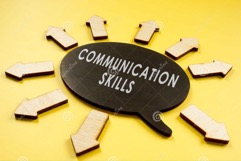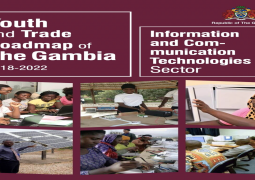
Teenage years can be difficult for many families. Young people may develop ideas, values and beliefs that are different to those of their parents. This is part of the normal process of moving towards independence.
Parents may struggle with how much independence they should allow their children at different ages and in different circumstances. Each young person is an individual and needs different advice.
Communication with teenagers is different from communicating with younger children and can cause conflict and stress.
If you follow some simple tips, it may help to improve communication with your teenager.
However, always seek professional advice if you are concerned about your family relationships.
Adolescence is a time of rapid change, not just for the young person but for the parents too. It might be hard to let go sometimes, but parents need to recognise. A child’s job is to grow up and become an independent adult.
As a parent, you need to help young people through this process. Young people may have viewpoints that are different from yours or may take up activities that you don’t understand.
Adolescence is a time when young people often struggle with their changing sense of identity and need to feel loved.
Demonstrate your love using whatever physical contact they are comfortable with. Celebrate their achievements, forgive their mistakes, listen to them when they have a problem and show interest in how they plan to solve it.
Feeling included and special is vital for every young person’s sense of positive self-esteem.
Youth Communication seeks to help marginalized youth develop their full potential through reading and writing so that they can succeed in school and at work and contribute to their communities.
It publishes anthologies of stories by teens, many of which also include lesson guides to help teachers and other adults use the stories to help teens strengthen reading, writing, and social/emotional skills.
Adolescents seem to communicate with their peers more electronically than face to face.
They chat with their friends through instant messaging, texting, social network sites such as Facebook and email.
Often times they are multi-tasking; they may be texting several of their friends while chatting via instant message and at the same time listening to the latest music download.
There world is insular, in constant motion and seemingly never ending.
There is information sharing in these messages which appear to be slightly exaggerated sound bites.
Discussions about homework, sports and the latest trends are shared.
Their online conversations tend to be short, but the back and forth dialogue with a multitude of friends can last for hours and simultaneously they are playing the latest video game.
They also consider playing online games with their friends as meaningful contact and conversation.
This seems more like parallel play as opposed to really being engaged with one another
Many young people prefer to communicate electronically rather than face to face.
This is because face to face communication has become foreign to them since they have limited experience communicating live-in person.
Lack of experience talking directly to each other has caused this means of discussion to become threatening.
Online chats are communicated through keyboard strokes and can be discontinued at any time.
It would be awkward to end a face to face discussion abruptly.
It is probably even more uncomfortable for kids to begin a face to face discussion.
Multi-tasking electronically creates anxiety and diminishes meaningful discussion and relationships. Many children and adolescents feel like their life is empty if they don’t devote an inordinate amount of time each day to multi-tasking.
It seems that the absence of moving from one text to another then to an online chat and then to one’s Facebook page creates an alarming boredom.
This sense that there is nothing to do to eventually create an anxiety that causes emotional outbursts or increased sadness.
Mastery of face to face or direct communication is important because connecting deeply with others is one of the most rewarding aspects of being alive.
It is also an important life skill. It still is not possible to conduct a job interview in a text message. Young folks need to learn how to ask and answer direct questions.
Lack of face to face communication eliminates the process of attempting to problem solve together.
Sometimes you have conflicts with those you love that require a real commitment to working through these issues.
This process takes time and energy. It is also very fulfilling once you obtain real resolution.
The use of electronics as the main means of communication does not support this intensity or sense of purpose.
The reliance on these gadgets causes kids to not have the patience for long, meaningful discussion.
Read Other Articles In Youth Forum

Gambian youth increasingly recognised as vital for driving energy sector
Jul 22, 2025, 12:14 PM

Youth, trade roadmap aim to tackle root causes of irregular migration in Gambia
Oct 20, 2020, 12:27 PM



